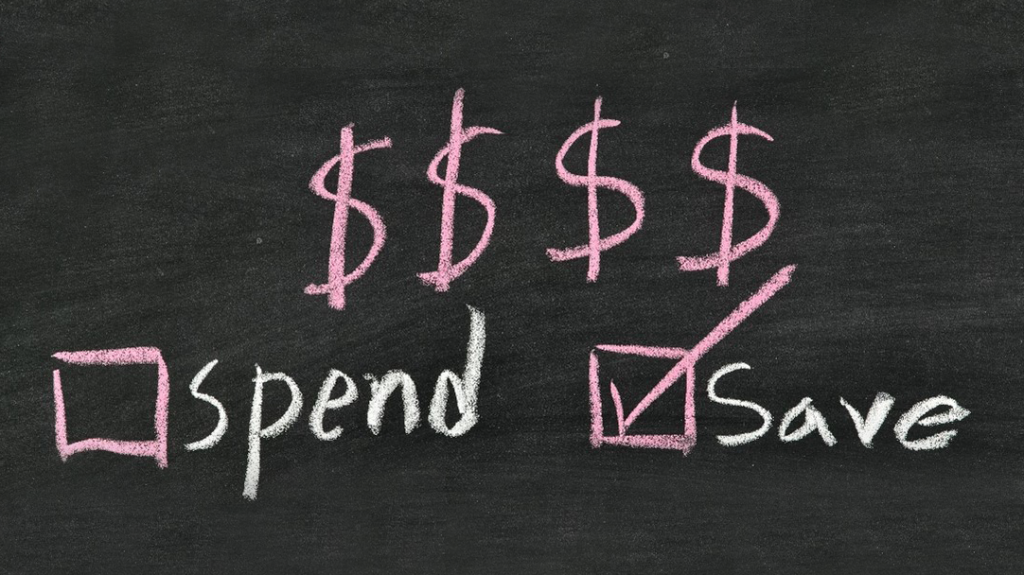
In today’s consumer-driven society, it’s easy to fall into the trap of mindless spending. We often find ourselves tempted by the latest gadgets, trendy clothes and indulgent treats. It’s crucial to recognize the importance of financial fitness and the impact it can have on your budgets. One simple yet powerful technique to regain control of your finances is to incorporate a weekly “no-spend day” into your routine. Listed below are some benefits of this practice and creative ways to make the most of your no-spend days.
Concept
A no-spend day is exactly what it sounds like – a day where you avoid any unnecessary expenses. It’s an opportunity to hit the pause button on impulsive buying habits and reassess financial priorities. By setting aside one day each week for this purpose, we develop mindfulness around spending patterns and establish healthier financial habits.
Benefits
Saving Money: No-spend days provide a golden opportunity to save money. By eliminating even a day’s worth of expenses, you can significantly boost your savings over time. The money saved can be allocated towards emergency funds, paying off debts or pursuing long-term financial goals.
Developing Mindful Consumption: Engaging in no-spend days forces us to evaluate wants versus needs. By consciously choosing not to spend, we become more aware of our spending triggers and gain a clearer understanding of what truly matters. This newfound mindfulness carries over to regular spending habits, helping us make wiser financial decisions.
Cultivating Creativity: Instead of relying on money to entertain us, discover alternative ways to have fun and enjoy life. This might involve exploring nature, engaging in hobbies, organizing game nights with friends or having a cozy movie marathon at home. The possibilities are endless, limited only by our imagination.
Making the Most
Plan Ahead: To maximize the benefits of no-spend days, plan your activities in advance. Take a few moments at the start of each week to brainstorm free or low-cost options for entertainment, relaxation and personal development. By having a plan, you’ll be less likely to give in to impulsive spending temptations.
Embrace Frugal Cooking: No-spend days provide an excellent opportunity to experiment with frugal cooking. Take stock of the ingredients already in your pantry and challenge yourself to create delicious meals from scratch. Not only will this save you money, but it can also improve your culinary skills.
Engage in Self-Care: Self-care doesn’t have to come with a hefty price tag. Use no-spend days to prioritize self-care activities that don’t require spending money. Whether it’s practicing meditation, taking a relaxing bath, reading a book or exploring a new hobby, dedicate time to yourself for personal well-being.
Connect with Others: No-spend days are an excellent opportunity to strengthen relationships without spending money. Plan a picnic in the park with friends, host a game night at home or organize a potluck dinner. Focus on shared experiences rather than material possessions, deepen your connections and create lasting memories.
Incorporating a no-spend day each week is a powerful tool to enhance your financial fitness. Embrace the challenge of finding joy and fulfillment without relying on material possessions. Financial freedom is not about depriving yourself but rather about aligning your spending with your values and long-term goals. Implement no-spend days and embark on a journey towards a healthier and more financially fit future.
Opinions expressed above are the personal opinions of the author and meant for generic illustration purposes only. RCB Bank, Member FDIC.
Sources: Dow, N. (2023, January 3). It’s time to cut yourself off: Here’s how to do a no-spend challenge. The Penny Hoarder. https://www.thepennyhoarder.com/save-money/no-spend-challenge/
Larsen, K. (2021, January 3). Tips for a no spend day or week or month. Believe In A Budget. https://believeinabudget.com/5-tips-for-a-no-spend-day-or-week-or-month/


